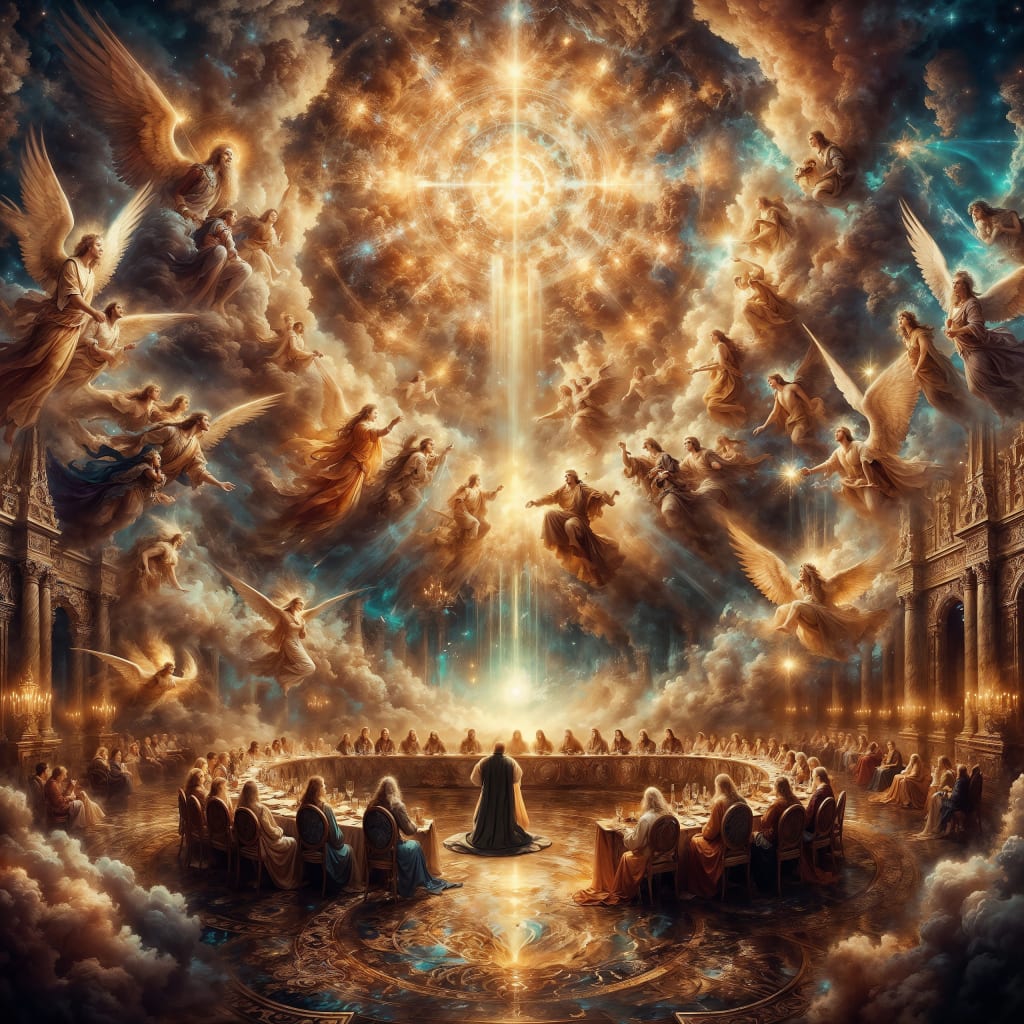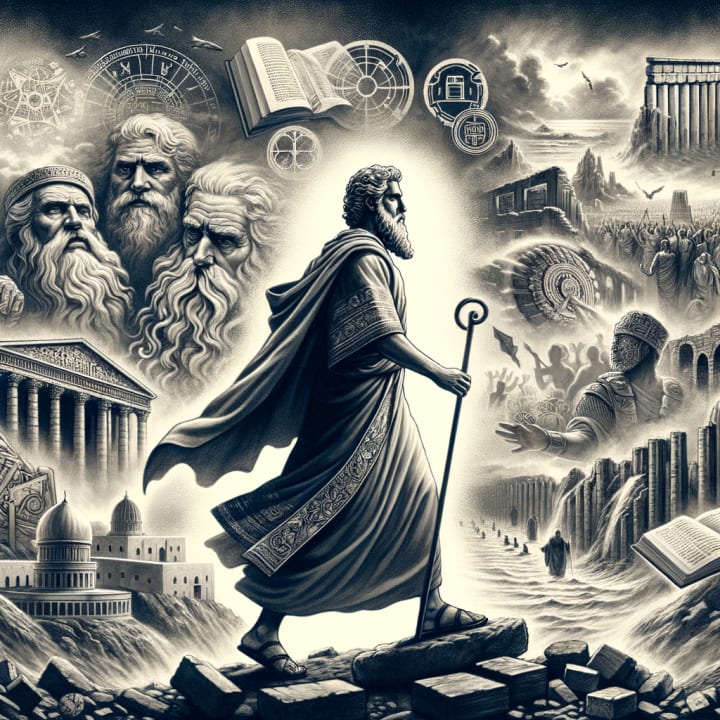Ezekiel: Prophet of Catastrophe and Hope
Unveiling the Visions and Messages of an Ancient Seer

Introduction: A Vision Amidst Ruins
In the annals of prophetic voices that echo through time, few are as poignant and as resonant as that of the prophet Ezekiel. His tenure, set against the backdrop of Jerusalem's destruction and the Babylonian exile, serves as a bridge between the end of one era and the fraught inception of another. Today, we delve into the life and teachings of this formidable figure, whose visions and messages continue to reverberate with spiritual urgency and existential relevance.

Ezekiel: The Man in Exile
Ezekiel, the priest turned prophet, found himself among the elite of Judah who were carried off to Babylon following the city's conquest in 597 BC. This deportation was not merely a geopolitical shift but a crisis of faith and identity for the Jewish people. Jerusalem's fall and the subsequent exile raised piercing questions about the nature and power of their God in a world where foreign deities seemed to have triumphed.

The Heavens Open: Ezekiel's Calling
Ezekiel's prophetic journey commenced with an overwhelming vision that would set the tone for his mission. The heavens themselves parted, revealing celestial beings of awe-inspiring appearance, symbolic of the divine council and the omnipresence of God. At the heart of this vision was the acknowledgment of God's unfathomable glory, a spectacle that brought Ezekiel to his knees in reverence and submission.

The Mission Unveiled: A Prophet's Burden
The divine commission Ezekiel received was fraught with challenges. He was to confront a nation steeped in rebellion, a people whose hearts had turned away from God. His message, one of judgment and the dire consequences of apostasy, was not one the Israelites were prepared to welcome. Yet, Ezekiel's charge was clear: to communicate God's word with unflinching fidelity, regardless of its reception.

Jerusalem's Fall: A Divine Judgment
The desolation of Jerusalem and the razing of the temple were cataclysmic events that demanded a theological response. Ezekiel's interpretation of this national tragedy was unambiguous. The calamity was a direct result of Israel's infidelity and idolatry - a divine judgment against a nation that had breached its covenant with God. This perspective was crucial in reorienting the people's understanding of their circumstances, shifting the blame from external forces to their own spiritual failings.

God Beyond the Temple: A Transcendent Presence
The destruction of the temple, the very symbol of God's presence, posed a profound dilemma for the exiles. How could they worship without the sacred center of their faith?

Ezekiel offered a revolutionary answer: God's presence was not confined to any physical edifice. He proclaimed a God unbounded by geography or architecture, a deity just as accessible in the alien land of Babylon as in the hallowed courts of Jerusalem.

Repentance: The Path to Restoration
Central to Ezekiel's message was the clarion call to repentance. The prophet urged his compatriots to recognise their transgressions and to return to their God with contrite hearts. This call to repentance was not merely about moral reform; it was a summons to a profound spiritual transformation and a redefinition of their relationship with the divine.

Individual Accountability: A New Ethical Paradigm
In a radical departure from collective culpability, Ezekiel emphasised personal responsibility. Each person was to be held accountable for their actions, independent of their ancestors' deeds or societal influences. This focus on individual morality underscored the importance of personal choice and the potential for every person to forge a righteous path.

The Sweetness of God's Word: Judgment and Salvation Intertwined
Ezekiel's reception of the scroll, inscribed with lamentations yet tasted as sweet as honey, encapsulates the dual nature of God's message. While it foretold devastation and sorrow, it was also imbued with the sweetness of divine love and the hope for redemption. God's word, even in its most foreboding pronouncements, carried the promise of salvation for those who would heed its call.

Conclusion: A Legacy of Enduring Faith
As we reflect on Ezekiel's enduring legacy, we are reminded of the timeless relevance of his teachings. His vision of a God unconfined by human constructs, the insistence on individual moral accountability, and the belief in the redemptive power of repentance continue to resonate across the millennia.
In the prophet's own words, the call to heed God's voice and not harden our hearts is as pertinent now as it was in the days of exile.

Let us, therefore, embrace the full spectrum of Ezekiel's message, finding in it both a sobering warning and an uplifting promise of divine love and restoration.
Amen.






Comments
There are no comments for this story
Be the first to respond and start the conversation.